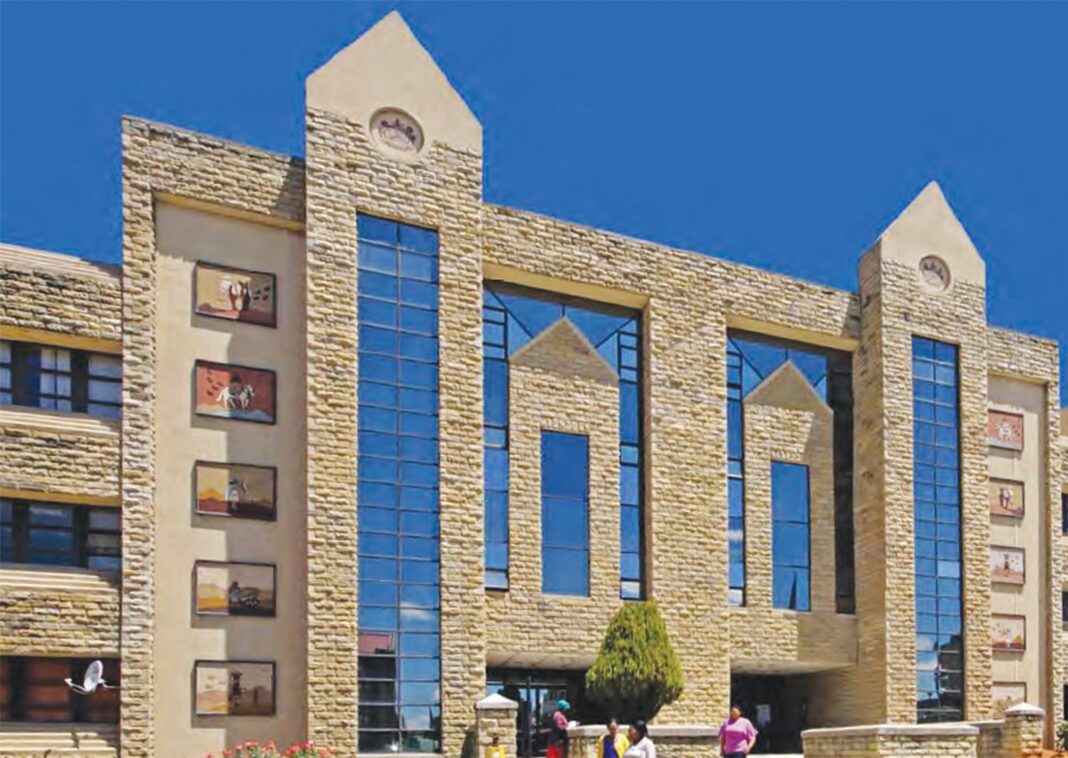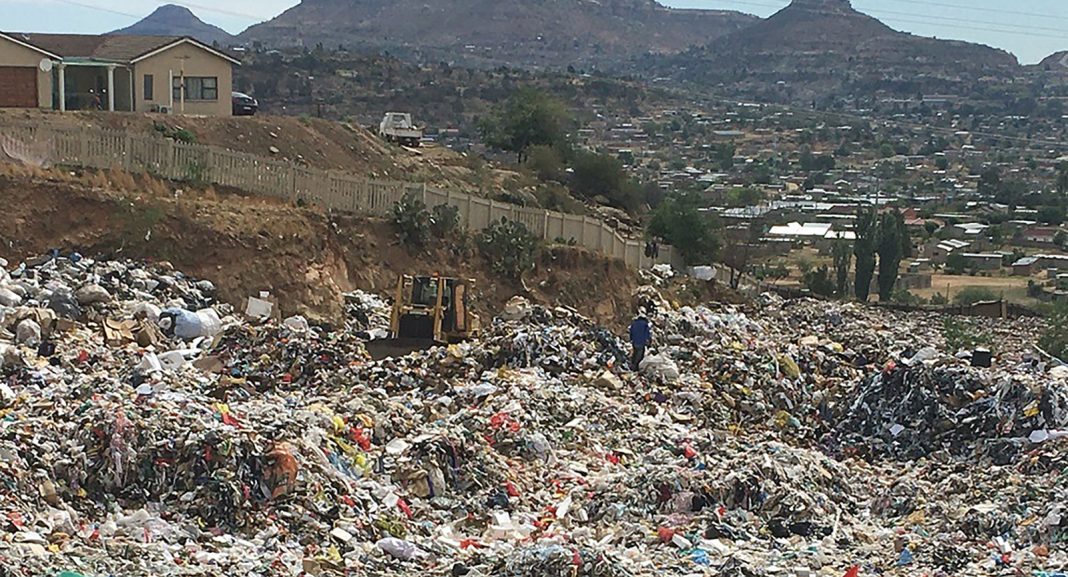Holding her seven-month old infant boy close, ‘Matsie Noko (25) looks down as she hunches on to breastfeed, a smile of contentment spreading across her face.
In this tender moment, the young mother from Mohalinyane in Mohale’s Hoek district cherishes the bond she shares with her child as she showers him with love and care.
Noko shares her motherhood story as Lesotho joins the rest of the globe to mark World Breastfeeding Week, highlighting the importance of breastfeeding in nurturing a child’s health and emotional well-being.
The theme for this year is ‘Closing the gap: breastfeeding support for all.’
The first-time mother recalls the initial difficulties she faced when learning to breastfeed, from the physical discomfort to the emotional stress of wondering if she was producing enough milk.
Like many new mothers, Noko says initially she was very uncomfortable at first and not sure whether she was doing it right.
But she says, knowing that breastfeeding was best for a baby, she kept trying and with support from nurses and family, the journey became easier.
Now Noko cherishes the moments she spends breastfeeding her baby.
“My journey as a first-time mother was filled with doubts, fear, anxiety and low self-esteem. It is a new experience and had challenges.
“Yet it is the most empowering thing to do as a woman, for myself and my baby. I enjoy breastfeeding and the bonding moments. I am also careful with hygiene issues before breastfeeding her. Luckily, even the Mohalinyane Health Centre I am getting services from has proper taps for us to wash our hands.
“My breastfeeding journey has become fun and painful at the same time as my baby has started teething and now bits my nipples; it is a stage that a mother will have to manage,” Noko noted.
For her, breastfeeding is a sacred act, a nourishing gift to her child, and a challenging journey that has brought both joy and hardship.
The World Health Organisation (WHO) describes breastfeeding as one of the most effective ways to ensure a child’s health and survival.
The organisation however, states that fewer than half of infants under six months old are exclusively breastfed.
WHO indicates that breastmilk is the ideal food for infants. It is safe, clean and contains antibodies which help protect against many common childhood illnesses.
In commemoration of World Breastfeeding Week this year, the Qacha’s Nek district’s nutrition and health and the ministry of agriculture, food security and nutrition and other stakeholders came together to empower nursing mothers with essential nutrition and hygiene packages.
The five-day event held at Mosafeleng health post from August 5 to 9 served to highlight the importance of breastfeeding and educate mothers, chiefs, councillors, village health workers on healthy nutrition and hygiene practices.
Nutritionist from the ministry of health in Qacha’s Nek, ‘Mapoulo ‘Moso says Mosafeleng was specifically targeted for this event because recent data showed a high prevalence of nutrition-related issues in the area.
In organising the event, she says, they also sought to measure mothers’ knowledge of breastfeeding and hygiene practices.
‘Moso adds it was critical for them to prioritise the area and provide mothers with the knowledge and resources they need to ensure their children’s health and well-being.
She emphasised the many benefits of breastfeeding, including its affordability, ability to strengthen the bond between mother and child, safety, cost-effectiveness and health benefits for the baby and the mother.
“Breastfeeding is truly a miracle of nature, and we must continue to promote it as the best way to ensure a child’s healthy start in life,” she noted.
In addition to nutrition education, they installed tip taps at the health post to promote good hygiene practices among mothers and anyone handling children.
“Handwashing with soap is a simple but vital habit to prevent the spread of diseases, and by providing these resources, we are helping mothers keep their children safe and healthy.
“With the event, we also sought to measure the mothers’ knowledge of breastfeeding and hygiene practices. These topics are regularly covered during their visits to the health centers, so we wanted to ensure that they were well-equipped with the information they needed to care for their children,” ‘Moso pointed out.
She further indicated that one of the challenges identified in the Mosafeleng area was the lack of supplements for new born babies at the health post.
This was due to the fact that Mosafeleng was not a fully-pledged health centre, and as a result mothers were not able to access the free supplements that children would typically receive at the six-months and two-year check-ups.
This is a significant gap that needs to be addressed to ensure that children are receiving the nutrition they need.
‘Moso also said they discovered that handwashing practices were not as frequent as they should be. This was partly due to lack of proper handwashing facilities, such as tip taps, which are essential for maintaining good hygiene.
“We have installed such facilities, but we must continue to educate mothers on the importance of handwashing to prevent the spread of disease. To address the gap in supplement availability, she says they taught the mothers how to make homemade remedies to provide their babies with essential nutrients.
“We showed them how they could add ingredients like fish or vegetables to their babies’ porridge to boost nutrition. These small adjustments can make a big difference in a child’s health,” she pointed out.
Qacha’s Nek district nutrition officer, Lebohang Nthake says the observance of the World Breastfeeding Week also included training and demonstrations on feeding practices, climate smart plots, child protection and policies, as well as household food production among others.
According to Nthake, the programme was targeting nursing mothers, caregivers, communities, nutrition clubs and local authority leaders as they all take part in the upbringing of a child.
In a bid to promote food sustainability, nutrition security and rejuvenate agricultural enthusiasm at the household level, also in accordance with the breastfeeding week, the ministry of agriculture, food security and nutrition held an exhibition in Mosafeleng.
The exhibition featured a range of preserved fruits and vegetables, clothing, grains and crops from the district’s six resource centres including Letlapeng, Sehlabathebe, Qhoalinyane, ‘Melikane, Matebeng and Thaba-Chitja.
Nthake says the exhibition aimed to encourage the establishment of nutrition clubs in the area as it has seen increased stunting rates among children under five due to poor feeding practices.
To champion good nutrition and hygiene, the ministry of agriculture also provided incentive packages filled with milk, oil, fish, sorghum flour, beans, sugar, soap, and salt to ten nursing mothers in Ha Sepechele, Mosafeleng.
She emphasized that this initiative is part of a larger effort to improve the nutritional status and achieve food security for every household.
“We aim to create a malnutrition-free district through the adoption of good nutrition and home economics practices, improving the nutritional status of vulnerable groups,” said Nthake.
The World Breastfeeding Week celebrations in Qacha’s Nek not only provided essential knowledge and resources to local mothers but also advanced key goals outlined in the United Nation’s Sustainable Development Agenda.
By promoting health and nutrition education, the event supports SDG 2 (zero hunger), and SDG 3 (good health and well-being), which seek to ensure that all people have access to nutritious food and quality healthcare.
“Breastmilk provides all the energy and nutrients that the infant needs for the first months of life and it continues to provide up to half or more of a child’s nutritional needs during the second half of the first year and up to one third during the second year of life
“Breastfed children perform better on intelligence tests are less likely to be overweight or obese and less prone to diabetes later in life. Women who breastfeed also have a reduced risk of breast and ovarian cancers,” WHO reports.
According to WHO, in the last 12 years the number of infants under six months of age globally who are exclusively breastfed has increased by more than 10 percent. This means 48 percent of infants worldwide now benefit from this healthy start in life. It translates to hundreds of thousands of babies whose lives been saved by breastfeeding.
“While this significant leap brings us closer to our target of increasing exclusive breastfeeding to at least 50 percent by 2025, there are persistent challenges that must be addressed.”









